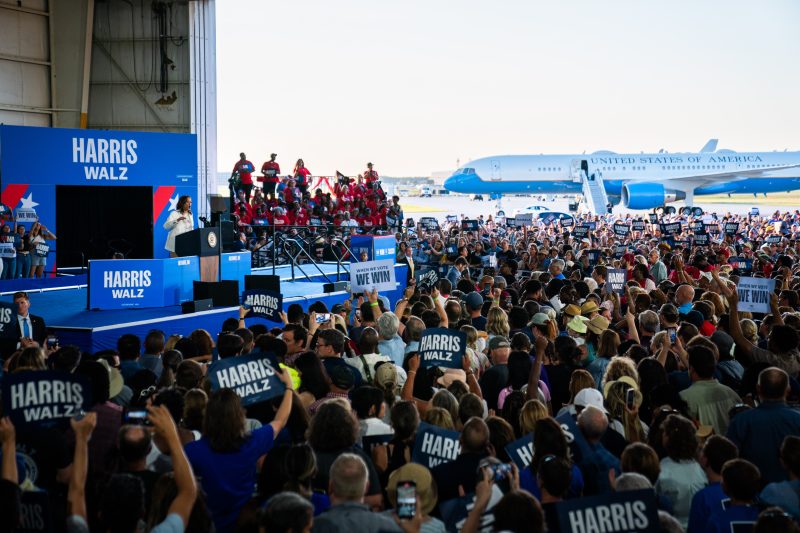In a surprising twist of events, former President Donald Trump has once again made headlines with his unfounded claims, this time targeting Vice President Kamala Harris and her campaign team. Trump took to social media to accuse the Harris campaign of using fabricated AI crowd photos to create the illusion of heightened support for the Vice President. The accusations have sparked a debate among political analysts and social media users, with many questioning the validity of Trump’s claims.
While Trump is known for his controversial statements and baseless allegations, his latest accusation has raised eyebrows due to its specificity and the implications it carries. The use of artificial intelligence in creating crowd photos is not unheard of in the digital age, with various platforms offering tools to manipulate images for various purposes. However, the idea that a high-profile political campaign would resort to such tactics raises concerns about the authenticity of public perception and the role of technology in shaping political narratives.
The Harris campaign has vehemently denied Trump’s allegations, calling them blatantly false and a desperate attempt to undermine the Vice President’s reputation. A spokesperson for the campaign stated that the photos in question were authentic and captured genuine moments from Harris’s public events. The campaign emphasized its commitment to transparency and honesty in all its communications with the public, dismissing Trump’s claims as baseless attacks driven by political vendetta.
The incident has reignited discussions about the impact of misinformation and disinformation in the realm of politics, especially in an era where digital manipulation and deepfake technology are becoming increasingly sophisticated. The ability to create convincing fake images and videos has raised concerns about the potential for malicious actors to deceive the public and manipulate the democratic process. Trump’s accusation against the Harris campaign serves as a reminder of the challenges posed by the rapid advancement of technology and the need for increased vigilance in verifying information sources.
As the controversy unfolds, it underscores the importance of critical thinking and fact-checking in evaluating claims made by public figures. In the age of social media and instant communication, misinformation can spread rapidly and have far-reaching consequences. It is essential for individuals to scrutinize information closely, consider the credibility of the sources, and exercise discernment in forming opinions. While political discourse may be fraught with conflicting narratives and heated debates, it is crucial to uphold truth and integrity in public dialogue.
In conclusion, Trump’s accusations against the Harris campaign regarding fabricated AI crowd photos have highlighted the challenges of navigating the digital landscape in contemporary politics. The incident serves as a reminder of the need for transparency, accountability, and skepticism in evaluating information sources. As technology continues to evolve, ensuring the veracity of information and maintaining the integrity of public discourse will be crucial in upholding democratic principles and fostering informed civic engagement.
